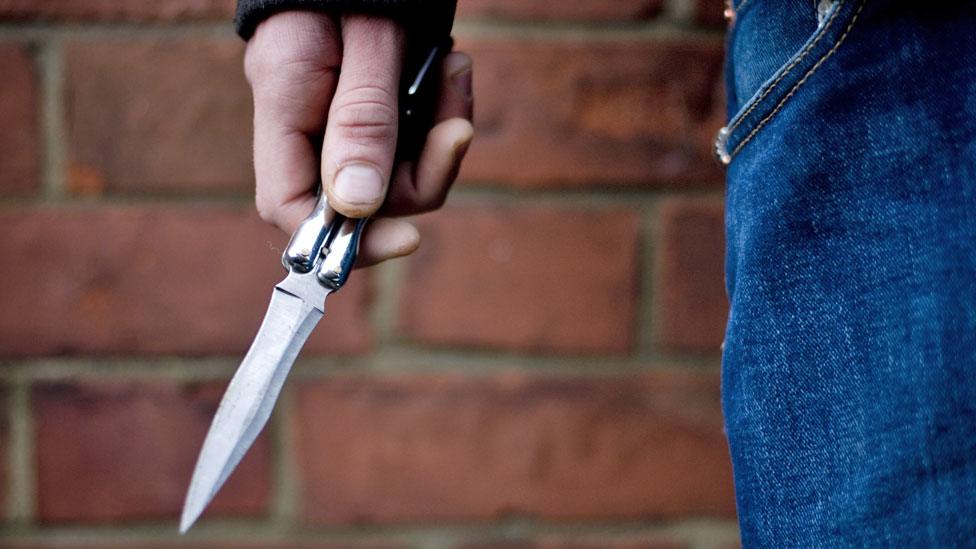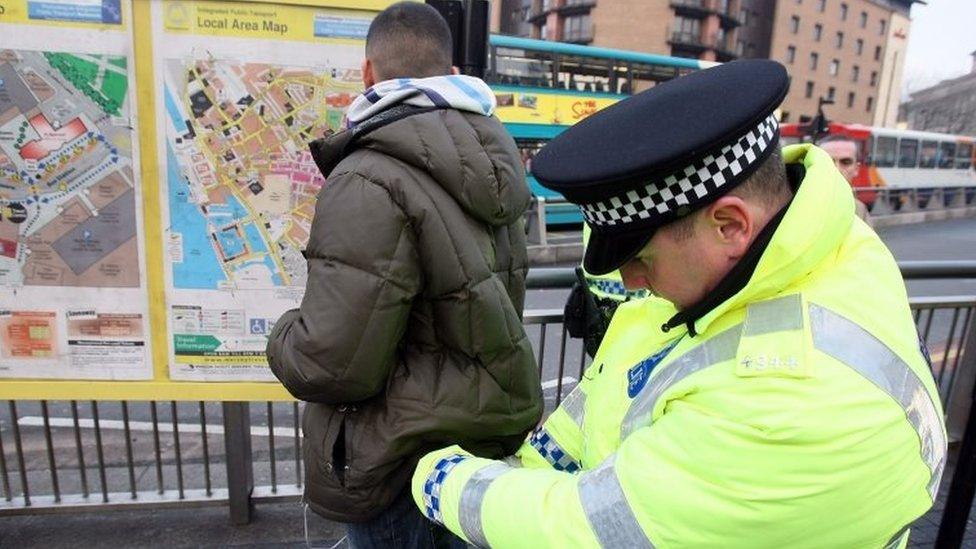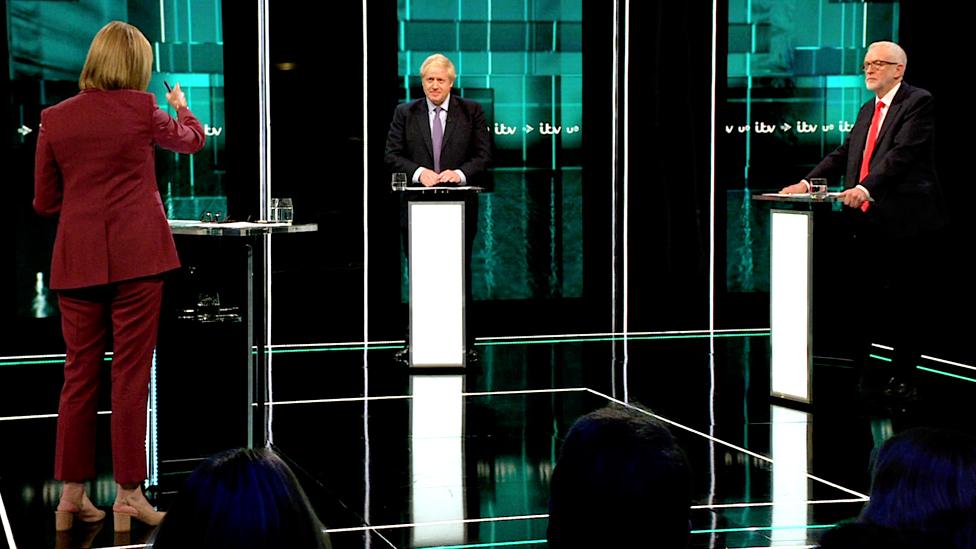General Election 2019: Johnson pledges to extend stop and search powers
- Published
Boris Johnson says the move will deter people from getting back to "the life of crime"
The police will be given "greater freedoms" to use stop and search on those known to have carried knives in the past, Boris Johnson has pledged.
Stop and search powers have proved controversial - and there is evidence that black people are disproportionately targeted.
But the government has previously said they work and "empower" the police.
Mr Johnson plans to speed up charging and prosecuting knife offenders as well, if the Tories win the election.
Responding to the Tory leader's announcement, shadow home secretary Diane Abbott said: "Tinkering with police powers cannot disguise Tory failure for almost a decade.
"Johnson supported Tory cuts to the police and has no plans to restore the frontline officers that successive Tory governments have axed - just as he never did make good on his promise to recruit 'thousands of extra police' as London Mayor."
She said the Conservatives did not "intend to do anything about the youth services they cut, or the funding for drug prevention or the increase in school exclusions that have all contributed to rising crime".

Tory proposals will be hotly contested

Knife crime remains at historically high levels across England and Wales and crime, more broadly, is a key concern among voters so the Conservatives' plans come as little surprise.
Speeding up court proceedings in knife possession cases is a largely uncontroversial idea but will take a huge effort across all parts of the criminal justice system to make it happen.
More contentious is the proposal to further increase stop and search powers at a time when police stops are on the rise after years of decline.
Although police chiefs are convinced stop and search is effective, the research is inconclusive and the disproportionate use of the tactic against young black men has been blamed for fuelling tensions.
The Tories' proposal to allow officers to search anyone previously cautioned or convicted for carrying a knife, without the need to have grounds to do so, is likely to be hotly contested.

Stop and search
Speaking at a boxing ring in Manchester, Mr Johnson said he wanted to "come down hard" on the "scourge" of knife crime.
Talking about his plans to extend stop and search to those with a previous conviction for carrying a knife, he said: "We think that that will deter young people who have been convicted of carrying from getting back involved in that kind of life again."
Stop and search is a tactic used by police to crack down on crime
Currently police officers are allowed to stop and search individuals if they have reason to suspect serious violence may take place.
Speaking in August, Home Secretary Priti Patel said: "Stop and search works - we hear again and again from police that [they] need to be empowered."
But Ms Abbott said the powers did not reduce violent crime.
Prosecution times
Mr Johnson also said his government would be "speeding up prosecutions to make sure the threat of being caught is always an effective deterrent".
Under his proposals, someone caught unlawfully with a knife would be arrested and charged within 24 hours - and appear in court within a week.
The Conservatives say this would be three times faster than the current average.
BBC home affairs journalist Gaetan Portal says although the current average time from offence to charge is 40 days, the median time - arguably a more representative measure - is just one day.
The current median time between someone being charged with an offence and appearing in court is 17 days.
Our Reality Check team says decreasing this time will require investment in the criminal justice system.
Violence reduction units
Mr Johnson also said the solution lay in "wrapping your arms around the kids and putting them on the right tracks in their lives".
He reiterated a previous pledge to boost funding for violence reduction units by £35m in 2020.
These units tackle knife crime by involving multiple public service providers on early intervention projects.
This method of reducing knife crime was first tried in Scotland in 2005.
- Published7 October 2019

- Published18 July 2019
- Published8 November 2018

- Published19 November 2019
